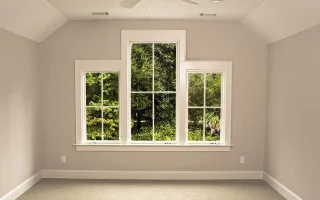The driveway is often visitors’ first impression of a property, serving as a functional entryway and a visual focal point. However, when shared with neighboring properties, a driveway can raise questions about ownership, maintenance responsibilities, and the overall impact on property value. In this article, we’ll delve into the potential effects of shared driveways on property value, considering both the advantages and disadvantages for homeowners and potential buyers.
Understanding Shared Driveways:

A shared driveway, also known as a joint driveway or typical driveway, is a driveway that serves multiple properties, allowing access to two or more homes from a single entry point. Shared driveways are standard in urban and suburban areas where properties are closely situated and land is premium. Shared driveways can take various forms, including:
- A single driveway that branches off to serve multiple homes.
- Two adjacent driveways share a common boundary.
- A driveway that crosses one property to provide access to another.
Pros and Cons of Shared Driveways:
Shared driveways offer several potential advantages and disadvantages for homeowners and potential buyers:
Pros:
- Cost Savings: Shared driveways can be more cost-effective to install and maintain since the expenses are divided among multiple property owners. This can be particularly beneficial for homeowners in areas where land and construction costs are high.
- Space Efficiency: Shared driveways can maximize land use and minimize the space dedicated to driveways, leaving more room for landscaping, gardens, or outdoor living areas.
- Community Benefits: Shared driveways can foster community among neighbors, encouraging collaboration, communication, and mutual respect. Neighbors may share maintenance tasks, such as snow removal or repairs, leading to stronger social connections and excellent camaraderie.
Cons:
- Ownership Disputes: Shared driveways can lead to disputes over ownership, usage rights, and maintenance responsibilities. Conflicts may arise between neighbors without explicit agreements or legal documentation, potentially leading to costly and time-consuming legal proceedings.
- Limited Control: Homeowners with shared driveways may have limited control over their driveway’s appearance, maintenance schedule, or usage. Differences in preferences or priorities among neighbors can result in disagreements over landscaping, repairs, or parking arrangements.
- Perceived Value: Some buyers may perceive shared driveways as a drawback when considering a property, viewing them as a potential source of inconvenience, privacy concerns, or conflicts with neighbors. This perception may impact the property’s marketability and resale value.
Impact on Property Value:
The impact of a shared driveway on property value can vary depending on various factors, including location, condition, and market demand. While shared driveways may offer cost savings and space efficiency benefits, they can also pose challenges and limitations that may affect property value:
- Location: In urban or densely populated areas where land is scarce, shared driveways may be more common and accepted, impacting property value less. However, in suburban or rural areas where larger lots and privacy are valued, buyers may view shared driveways less favorably.
- Condition: The condition of a shared driveway can significantly influence its impact on property value. Well-maintained, aesthetically pleasing driveways with clear agreements and shared maintenance responsibilities may have a minimal effect on property value. In contrast, neglected or poorly maintained driveways with unresolved disputes may detract from a property’s appeal and marketability.
- Market Demand: Buyer preferences and market trends can also influence the perceived value of a property with a shared driveway. In competitive real estate markets with limited inventory, buyers may be more willing to compromise on certain features, including driveway arrangements, if other desirable attributes outweigh any perceived drawbacks.
Conclusion:
In conclusion, the impact of a shared driveway on property value is multifaceted and depends on various factors, including location, condition, and market demand. While shared driveways offer potential cost savings and space efficiency benefits, they can also pose challenges related to ownership disputes, limited control, and perceived value.




